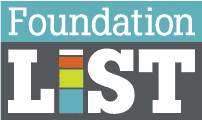May is a significant month in the United States as it marks the observance of Asian/Pacific American Heritage Month, also known as AANHPI Heritage Month. This annual celebration provides a wonderful opportunity for us to delve into the rich cultures and experiences of individuals from Asian American, Native Hawaiian, and Pacific Islander backgrounds. Originally established as Pacific/Asian American Heritage Week in 1978 and later expanded to a month-long recognition in 1992, this commemorative period serves as a reminder of the diverse contributions and struggles faced by AANHPI communities. In this blog post, we will explore the significance of AANHPI Heritage Month, highlight the ongoing efforts to advance AAPI representation, and provide a selection of resources for further exploration.
Embracing AANHPI Heritage:
The term “Asian/Pacific” encompasses a vast range of countries, islands, and cultures. From the Asian continent to the islands of Melanesia, Micronesia, and Polynesia, the AANHPI community is diverse and multifaceted. While no single term can fully capture the complexities of this vibrant community, AANHPI Heritage Month allows us to celebrate and learn from the diverse individuals and communities that contribute to the fabric of our society. To better understand the nuances of terminology and identity, we recommend reading the thought-provoking article “Opinion: Does the term ‘Asian American and Pacific Islander’ make sense anymore?” by Harry Mok.
Advancing AAPI Representation:
Throughout history, AANHPI communities have been at the forefront of fighting for equality and justice. The Federal Asian Pacific American Council has chosen “Advancing Leaders Through Opportunity” as the theme for AAPI Heritage Month, emphasizing the need to promote and uplift AAPI Americans in various sectors, including the U.S. government. This theme reminds us of the ongoing work being done by AANHPI communities to create a more equitable and inclusive society for everyone. We recognize that our existing systems were not originally designed to benefit all individuals, and we must continue to actively build a path toward equality. AANHPI histories intertwine with those of other minority groups in the United States, as eloquently described in the resources provided below.
Exploring Resources and Supporting AANHPI Communities:
To fully immerse ourselves in the richness of AANHPI heritage and history, we encourage everyone to explore the recommended resources. These include a captivating video titled “Can stereotypes ever be good?” by Sheila Marie Organo and Densho.org, a comprehensive timeline of the Model Minority Myth, and an enlightening article on Asian American civil rights cases by Suzanne Nguyen. Additionally, organizations such as the Fred T. Korematsu Institute and the Smithsonian Asian Pacific American Center offer valuable insights into the contributions of AANHPI communities and provide educational initiatives promoting racial equity and social justice.
As AANHPI Heritage Month unfolds, numerous events and exhibitions take place across the country. We encourage you to seek out local AANHPI Heritage Month activities and engage with the vibrant cultural experiences they offer. Furthermore, consider supporting AANHPI-owned businesses in your area, as they contribute to the economic growth and vibrancy of our communities. By educating ourselves, exploring resources, and engaging with AANHPI Heritage Month events, we can foster a more inclusive and equitable society for all. Let us embrace the opportunity to celebrate, learn, and stand in solidarity with the AANHPI community during this important month and beyond.
Resources:
- Video: “Can stereotypes ever be good?” by Sheila Marie Organo and Densho.org (TED-Ed).
- Related Article: “A Timeline of the Model Minority Myth” (Densho).
- Article:“4 U.S. Supreme Court Cases Where Asian American Fought for Civil Rights” by Suzanne Nguyen (NPR).
- Organization: Fred T. Korematsu Institute (“The Fred T. Korematsu Institute (KI) is a national education advocacy organization committed to promoting civic participation and education to advance racial equity, social justice, and human rights for all.”)
- Organization: AAPA Diversity, Equity, and Inclusion Resource Center
- Organization: Smithsonian Asian Pacific American Center (“The Smithsonian Asian Pacific American Center brings history, art and culture to you through innovative museum experiences and digital initiatives.”)
- Resource Hub: “2023 Celebration Guide” from the APA Heritage Foundation.
- Resource: AANHPI Service Providers by state — mental health and behavioral services for Asian Americans, Native Hawaiians, and Pacific Islanders
- Resource: AsianPacificAmericanHeritage.gov
- Resource: Asian Pacific American Institute for Congressional Studies
- Resource: Chinese American World War II Veterans Project
- Resource: Congressional Asian Pacific American Caucus
- Resource: Library of Congress AAPI Collections
- Resource: Library of Congress Asian Pacific Americans: Going for Broke
- Resource: Library of Congress Law Library – Asian Pacific American Heritage Month
- Resource: National Archives AAPI Heritage Month
- Resource: National Association of Asian American Professionals
- Resource: PBS Asian Americans Docuseries
- Resource: Public Broadcasting Service AAPI Specials
- Resource: White House Initiative on AAPIs

